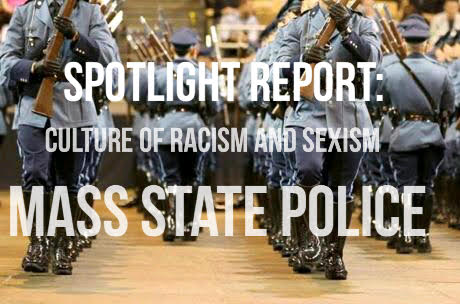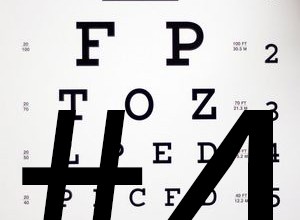In another story of the old, white guard not wanting to evolve into an inclusive workforce, the Spotlight Team at the Boston Globe turned to documents to connect the discrimination cases filed against the Mass State Police, indicating a systemic culture of racism and sexism. A notoriously tight lipped group, the reporting offers a glimpse into a historically secretive state department.
From the Boston Globe. Excerpts below, full text at BostonGlobe.com
Jones, whose career and credentials should have left him well-positioned for the department’s highest ranks, quit the force in frustration after he said the department failed to punish a major who ostracized him. Instead, the commander promoted Jones to a dead-end desk job, a move designed, Jones believes, to persuade him to abandon his discrimination complaint. “I couldn’t stomach it anymore,” said Jones, who retired as a major at age 49. “I left the State Police because my heart was broken.”
Even those active troopers who are currently suing the department were reluctant to speak for this article, fearing retribution and honoring a code of silence common among police. To obtain a sense of the internal culture of the State Police, the Globe scoured dozens of lawsuits, scattered throughout the state and difficult to track down because of the state’s restrictive public records laws and court protocols.
HBLB: Officials are saying all the right things:
“We believe the more closely the department represents the population we serve and protect, the better we fulfill our public safety mission,” Procopio said.
Procopio pointed out that the number of complaints filed with the Massachusetts Commission Against Discrimination — about 50 since 2010 — “represents a minuscule fraction of the department’s total workforce” of nearly 2,700 sworn officers and civilian personnel. Nearly half of those cases, Procopio said, were withdrawn, found to lack probable cause, or won by the department; most of the rest are pending, either with the commission or in court.
HBLB: But it’s what they’re not saying, or don’t want anyone seeing that’s of interest:
Allegations made against the State Police are investigated in a number of venues. Hundreds of complaints a year, many lodged by the public, are reviewed by the department’s internal affairs unit. Those records are public by law, but when the Globe requested just one file last year, State Police demanded $500 for the staff time to review and redact it.
A separate unit investigates internal allegations of harassment involving sworn officers or civilian staff. In denying a Globe records request for that unit’s recent findings, State Police wrote that they reviewed “approximately 85 reports and/or inquiries” generated since the start of 2010, but argued that the material is exempt under the state records law. The Globe’s appeal of that denial is pending.
Two other records requests filed last fall, seeking more information about each discrimination commission complaint and about legal agreements in which the state paid to settle lawsuits against the department, are also pending.
The lawsuits represent a window into retrograde attitudes infecting some portion of the State Police, according to those who have spoken out about the department’s culture.
“It’s like being on the schoolyard,” said Derek Langton, a retired state trooper who sued the department for discrimination after several fellow troopers allegedly harassed him for being gay, stuffing his locker with condoms, deflating his cruiser’s tires, and making crass remarks about his husband’s Asian ancestry.
“I loved the job,” said Langton, who accepted a $10,000 settlement from the department, records show. “I hated what happened.”
Cindy Doty, one of the first women to command a special State Police tactical unit, alleged in a 2012 affidavit that her commanding officer so despised her that he alternately ignored and yelled at her, physically intimidated her at work and drove by her home, cut her position to part-time, and transferred her to a different troop. Despite a discrimination commission ruling in favor of the State Police, a superior court judge ruled that Doty’s complaint “lays out more than enough factual support for claims of discrimination and retaliation against her former commander.” But the judge found that the conduct all fell outside the three-year statute of limitations for such claims.
HBLB: They Swear to Protect the Public, but There Just as Passionate About Protecting Each Other:
“The culture in the State Police is that they protect one another,” said Howard Friedman, a Boston civil rights lawyer whose firm focuses on representing victims of police misconduct. He pointed to a pending criminal case against Trooper Robert Sundberg, who is charged with rape and several other felonies stemming from an allegedly abusive relationship with a woman who is also a trooper.
At a hearing last year, Sundberg drew support from a half-dozen fellow troopers — one of whom acknowledged on the stand that he’d seen Sundberg punch through the woman’s car window but did not report it because “we were all pretty intoxicated.” Sundberg is on unpaid leave from the department while the case is adjudicated.
“If the troopers can fill a courtroom for a trooper charged with rape, that tells you quite a lot,” Friedman said.






